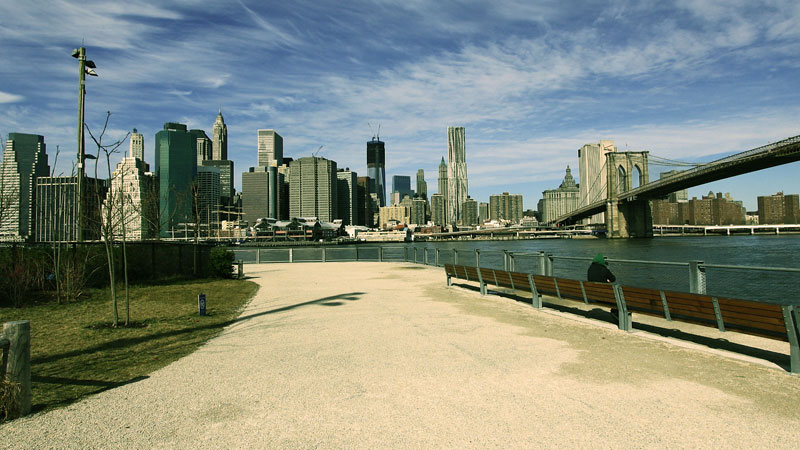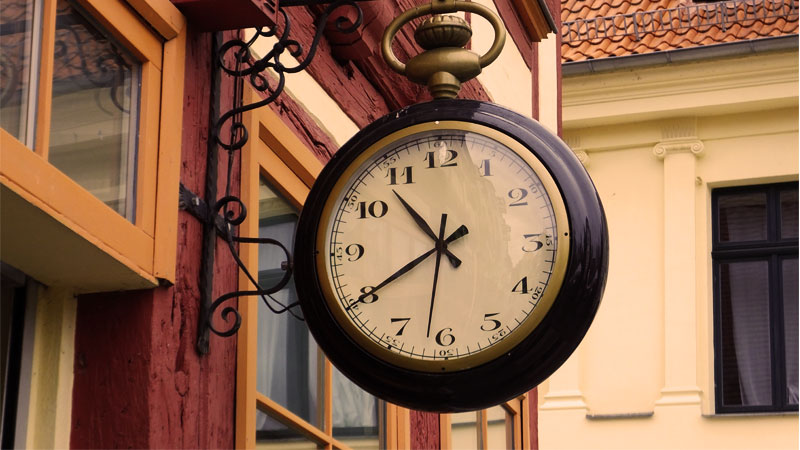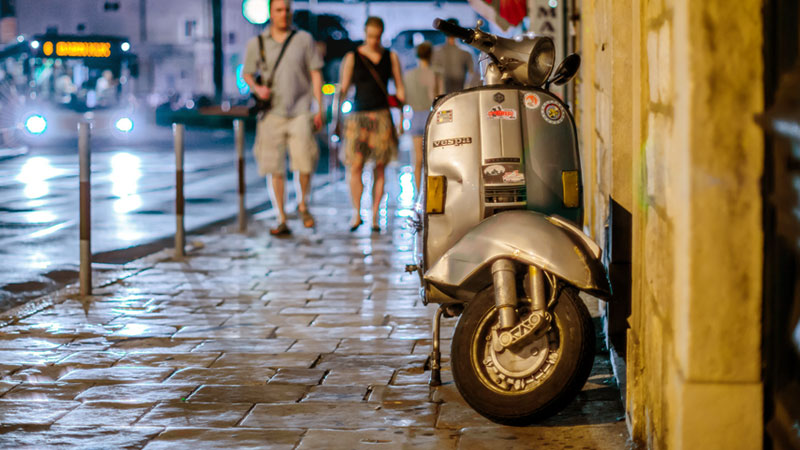
Top US general warns Ukraine on brink of being overrun by Russia
WASHINGTON — The tenacity of Ukrainian troops will soon be no match for Russia’s manpower and missiles should U.S. lawmakers fail to approve additional security assistance for Ukraine, the top American general in Europe told lawmakers, part of a stark warning about the direction of the more than two-year-old conflict.
U.S. military officials have warned repeatedly in recent weeks that Russian forces have been able to make incremental gains in Ukraine and that without renewed U.S. backing, Ukraine’s forces will eventually falter.
Testifying before the House Armed Services Committee Wednesday, the commander of U.S. European Command described the battlefield in blunt terms.
“If we do not continue to support Ukraine, Ukraine will run out of artillery shells and will run out of air defense interceptors in fairly short order,” said General Christopher Cavoli, explaining that Kyiv is dependent on the United States for those key munitions.
“I can’t predict the future, but I can do simple math,” he said. “Based on my experience in 37-plus years in the U.S. military, if one side can shoot and the other side can’t shoot back, the side that can’t shoot back loses.”
Cavoli also said the failure of U.S. lawmakers to approve a $60 billion supplemental security package is already giving Russia a significant advantage.
“They [Ukraine] are now being outshot by the Russian side 5-to-1,” he told lawmakers. “That will immediately go to 10-to-1 in a matter of weeks.
“We are not talking about months. We are not talking hypothetically,” Cavoli said.
Multiple U.S. officials have warned that Ukraine’s military has been forced to ration artillery and air defense capabilities as Kyiv waits for U.S. lawmakers to approve the supplemental assistance.
“We are already seeing the effects of the failure to pass the supplemental,” Assistant Secretary of Defense Celeste Wallander told the panel, testifying alongside U.S. European Command’s Cavoli.
“We don’t need to imagine,” she said, blaming the lack of U.S. provided artillery for why “the Russian attacks are getting through.”
That supplemental defense package passed in the U.S. Senate back in February, but leadership in the House of Representatives has so far refused to bring the legislation to the floor for a vote.
During a press conference on Capitol Hill Wednesday, Republican House of Representatives Speaker Mike Johnson said lawmakers were continuing to “actively discuss our options on a path forward.”
“It’s a very complicated matter at a very complicated time. The clock is ticking on it, and everyone here feels the urgency of that,” Johnson said. “But what’s required is that you reach consensus on it, and that’s what we’re working on.”
House Democrats, however, have voiced frustration with Johnson’s refusal to call a vote.
“The House has waited months now to approve the security package to help protect Ukraine,” said Representative Adam Smith, the top Democrat on the House Armed Services Committee. “Weeks ago, we were too late. And now every day is at an extreme cost to our ability to deter Russia.”
Another Democrat on the committee, Representative Elissa Slotkin, scolded Johnson, saying he needs to call a vote despite opposition from a small group of House Republicans.
“We do need to get it over the finish line,” she said. “I accept that he’s at risk of losing his job over that choice, but that’s what leadership is — it’s the big boy pants and making tough choices.”
Some Republicans, though, chastised Democratic lawmakers for what they described as misguided priorities.
“We’ve got hundreds of thousands of Americans who are dying, fentanyl overdoses, child and human sex trafficking, not to mention 178-plus countries that are crossing our border,” said Republican Representative Cory Mills.
“But, oh wait, that’s not the priority. Let’s secure Ukraine’s borders,” he said.
VOA’s Katherine Gypson contributed to this report.
…
EU lawmakers approve an overhaul of migration law, hoping to deprive the far right of votes
BRUSSELS — European Union lawmakers approved Wednesday a major revamp of the bloc’s migration laws aimed at ending years of division over how to manage the entry of thousands of people without authorization and depriving the far right of a vote-winning campaign issue ahead of June elections.
The members of the European Parliament voted on the so-called Pact on Migration and Asylum, regulations and policies meant to help address the thorny issue of who should take responsibility for migrants when they arrive and whether other EU countries should be obliged to help.
The proceedings were briefly interrupted by a small but noisy group of demonstrators in the public gallery who wore shirts marked “this pact kills” and shouted “vote no!”
The 27 EU member countries must now endorse the reform package, possibly in a vote in late April, before it can enter force.
The plan was drawn up after 1.3 million people, mostly those fleeing war in Syria and Iraq, sought refuge in Europe in 2015. The EU’s asylum system collapsed, reception centers were overwhelmed in Greece and Italy, and countries further north built barriers to stop people entering.
But few have admitted to being happy with the new policy response to one of Europe’s biggest political crises, and even the lawmakers who drafted parts of the new regulations are unwilling to support the entire reform package.
“I’m not going to open a bottle of champagne after this,” Dutch lawmaker Sophie i’nt Veld, who drew up the assembly’s position on migrant reception conditions, told reporters on the eve of the plenary session in Brussels. She said she planned to abstain from some of the votes.
In’t Veld described the pact as “the bare minimum” in terms of a policy response, but she does not want to torpedo it by voting against. “We will not have another opportunity to come to an agreement,” she said.
Swedish parliamentarian Malin Bjork, who worked on refugee resettlement, said that the pact does not respond to “any of the questions it was set to solve.”
She said the reform package “undermines the individual right to seek asylum” in Europe because it would build on plans that some EU countries already have to process migrants abroad. Italy has concluded one such deal with Albania.
“We cannot have a situation where people systematically, in their thousands, die on their way seeking protection and refuge in Europe,” Bjork told reporters.
The new rules include controversial measures: facial images and fingerprints could be taken from children from the age of 6, and people may be detained during screening. Fast-track deportation could be used on those not permitted to stay.
“The pact will lead to more detention and de facto detention at the EU’s external borders, including for families with children, which is in clear violation of international law,” said Marta Gionco from Picum, a network of migrant rights defense organizations.
Mainstream political parties want to secure agreement on the pact ahead of Europe-wide elections on June 6-9. Migration is likely to be a campaign issue, and they believe the new reforms address concerns about an issue that has been a consistent vote-winner for far-right parties.
…
US restricts trade with companies tied to drones used by Russia, Houthis
WASHINGTON — The United States restricted trade with five companies on Wednesday that it said help produce and procure drones for use by Russia in Ukraine and by Iran-backed Houthis in Red Sea shipping attacks.
The companies from Russia and China were among 11 additions to the Commerce Department’s Entity List, which means suppliers need licenses before shipping goods and technology to them.
Russia has intensified its drone and missile strikes against Ukrainian energy facilities in recent weeks, causing significant damage and threatening a repeat of the blackouts experienced in the first year after Russia invaded Ukraine in February 2022.
The Commerce Department added a Chinese entity, Jiangxi Xintuo Enterprise Company, for supporting Russia’s military through the procurement, development and proliferation of Russian drones, it said.
Shenzhen Jiasibo Technology Company of China was cited for being part of a network procuring aerospace components, including drone applications, for an aircraft company in Iran. Three Russian entities — Aerosila JSC SPE, Delta-Aero LLC, and JSC ODK-Star — were added for being part of the network.
“These components are used to develop and produce Shahed-series UAVs which have been used by Iran to attack oil tankers in the Middle East and by Russia in Ukraine,” the Federal Register notice said, referring to unmanned aerial vehicles.
Attacks on ships, including oil tankers, by Iranian-backed Houthis have disrupted global shipping through the Red Sea. Yemen’s Houthi militia say they are retaliating against Israel’s war against Palestinian Hamas militants in Gaza.
Companies are added to the U.S. Entity List when Washington deems them a threat to U.S. national security or foreign policy. Suppliers must then be granted licenses, which are likely to be denied, before shipping goods to entities on the list.
The two United Arab Emirates citations, Khalaj Trading LLC and Mahdi Khalaj Amirhosseini, were added for apparently violating Iran sanctions by exporting or trying to export items from the United States to Iran through UAE, according to the posting.
Four Chinese entities were cited for acquiring U.S. items to support China’s military modernization efforts, it said. They are LINKZOL (Beijing) Technology Company, Xi’an Like Innovative Information Technology Company, Beijing Anwise Technology Company and Sitonholy (Tianjin) Company.
U.S.-Chinese military contacts resumed late last year, but tensions continue due to fundamental differences over Taiwan and the South China Sea that remain dangerous potential flashpoints.
Chinese leader Xi Jinping has pumped billions into buying and developing equipment as part of his modernizing efforts to build a “world-class” military by 2050, with Beijing’s outsized defense budget growing at a faster pace than the economy for some years.
…
Blinken, Cameron implore Republican lawmakers to unblock aid to Ukraine
British Foreign Secretary David Cameron met with U.S. Secretary of State Antony Blinken in Washington to help push for a new aid package for Ukraine. He also met with former President Donald Trump in Florida, as VOA’s Senior Diplomatic Correspondent Cindy Saine reports from the State Department.
…
Russia, Kazakhstan evacuate 100,000 people in worst flooding in decades
ORSK, Russia — Russia and Kazakhstan ordered more than 100,000 people to evacuate after swiftly melting snow swelled rivers beyond bursting point in the worst flooding in the area for at least 70 years.
The deluge of melt water overwhelmed scores of settlements in the Ural Mountains, Siberia and areas of Kazakhstan close to rivers such as the Ural and Tobol, which local officials said had risen by meters in a matter of hours to the highest levels ever recorded.
Late on Tuesday, levels of the Ural River in Orenburg, a city of around 550,000, reached 9.31 meters (30.54 feet) exceeding the critical level of 9.30 meters (30.51 feet), the regional governor said. He urged residents in areas at risk to evacuate.
“I am calling for caution and for those in flooded districts to evacuate promptly,” Denis Pasler said on Telegram.
City residents paddled along roads as though they were rivers. Dams and embankments were being strengthened.
Upstream on the Ural, floodwaters burst through an embankment dam in the city of Orsk last Friday.
Regional officials said water levels in Orsk had subsided by 21 centimeters (.68 feet) and now stood at 9.07 meters 29.75 feet), still well over the official danger level of about 7 meters (22.96 feet). Russia’s Emergencies Ministry said water levels had declined in a number of areas but described the situation as “still difficult.”
The Ural is Europe’s third-longest river, which flows through Russia and Kazakhstan into the Caspian.
Evacuation order
Sirens in Kurgan, a city on the Tobol River, a tributary of the Irtysh, warned people to evacuate immediately. Regional officials said floodwaters would continue to rise for three days and predicted a “difficult situation” until the end of April.
A state of emergency was also declared in Tyumen, a major oil-producing region of Western Siberia, the largest hydrocarbon basin in the world. Russian news agencies said Emergencies Minister Alexander Kurenkov had arrived in the city as part of a regional tour assessing flood danger.
“The difficult days are still ahead for the Kurgan and Tyumen regions,” Kremlin spokesman Dmitry Peskov told reporters. “There is a lot of water coming.”
Tyumen is about 200 kilometers (124.27 miles) north of Kurgan.
President Vladimir Putin spoke to President Kassym-Jomart Tokayev of Kazakhstan, where more than 86,000 people have been evacuated because of the flooding. Tokayev said the flooding was probably the worst in 80 years.
The most severely hit areas are Atyrau, Aktobe, Akmola, Kostanai, Eastern Kazakhstan, Northern Kazakhstan and Pavlodar regions, most of which border Russia and are crossed by rivers originating in Russia such as the Ural and the Tobol.
Russians beg for help
In Russia, anger boiled over in Orsk when at least 100 Russians begged the Kremlin chief for help and chanted “shame on you” at local officials who they said had done too little.
The Kremlin said Putin was being updated on the situation but had no immediate plans to visit the flood zone as local and emergency officials were doing their best to tackle the deluge.
In Kurgan, a region with 800,000 residents, drone footage showed traditional Russian wooden houses and the golden kupolas of Orthodox Churches stranded alongside an expanse of water.
Russian officials have said some people ignored calls to evacuate. Kurgan Governor Vadim Shumkov urged residents to take the warnings seriously.
“We understand you very well: It is hard to leave your possessions and move somewhere at the call of the local authorities,” Shumkov said. “It’s better that we laugh at the hydrologists together later and praise God for the miracle of our common salvation. But let’s do it alive.”
In Kurgan, water levels were rising in the Tobol. Russia said 19,000 people were at risk in the region.
Rising waters were also forecast in Siberia’s Ishim River, also a tributary of the Irtysh, which along with its parent, the Ob, forms the world’s seventh-longest river system.
It was not immediately clear why this year’s floods were so severe as the snow melt is an annual event in Russia. Scientists say climate change has made flooding more frequent worldwide.
…
Peter Higgs, physicist who proposed the existence of the ‘God particle,’ dies at 94
LONDON — Nobel prize-winning physicist Peter Higgs, who proposed the existence of the so-called “God particle” that helped explain how matter formed after the Big Bang, has died at age 94, the University of Edinburgh said Tuesday.
The university, where Higgs was emeritus professor, said he died Monday following a short illness.
Higgs predicted the existence of a new particle, which came to be known as the Higgs boson, in 1964. He theorized there must be a subatomic particle of certain dimension that would explain how other particles — and therefore all the stars and planets in the universe — acquired mass. Without something like this particle, the set of equations physicists use to describe the world, known as the standard model, would not hold together.
Higgs’ work helps scientists understand one of the most fundamental riddles of the universe: how the Big Bang created something out of nothing 13.8 billion years ago. Without mass from the Higgs, particles could not clump together into the matter we interact with every day.
But it would be almost 50 years before the particle’s existence could be confirmed. In 2012, in one of the biggest breakthroughs in physics in decades, scientists at CERN, the European Organization for Nuclear Research, announced that they had finally found a Higgs boson using the Large Hardron Collider, the $10 billion atom smasher in a 17-mile (27-kilometer) tunnel under the Swiss-French border.
The collider was designed in large part to find Higgs’ particle. It produces collisions with extraordinarily high energies in order to mimic some of the conditions that were present in the trillionths of seconds after the Big Bang.
Higgs won the 2013 Nobel Prize in Physics for his work, alongside Francois Englert of Belgium, who independently came up with the same theory.
Edinburgh University Vice Chancellor Peter Mathieson said Higgs, who was born in Newcastle, was “a remarkable individual – a truly gifted scientist whose vision and imagination have enriched our knowledge of the world that surrounds us.”
“His pioneering work has motivated thousands of scientists, and his legacy will continue to inspire many more for generations to come.”
Born in Newcastle, northeast England, on May 29, 1929, Higgs studied at King’s College, University of London, and was awarded a doctorate in 1954. He spent much of his career at Edinburgh, becoming the Personal Chair of Theoretical Physics at the Scottish university in 1980. He retired in 1996.
One highlight of Higgs’ career came in the 2013 presentation at CERN in Geneva where scientists presented in complex terms — based on statistical analysis unfathomable to most laypeople — that the boson had been confirmed. He broke into tears, wiping down his glasses in the stands of a CERN lecture hall.
“There was an emotion — a kind of vibration — going around in the auditorium,” Fabiola Gianotti, the CERN director-general told The Associated Press. “That was just a unique moment, a unique experience in a professional life.”
“Peter was a very touching person. He was so sweet, so warm at the same time. And so always interested in what other people had to say,” she said. “Able to listen to other people … open, and interesting, and interested.”
Joel Goldstein, of the School of Physics at the University of Bristol, said: “Peter Higgs was a quiet and modest man, who never seemed comfortable with the fame he achieved even though this work underpins the entire modern theoretical framework of particle physics.”
Gianotti recalled how Higgs often bristled at the term “God particle” for his discovery: “I don’t think he liked this kind of definition,” she said. “It was not in his style.”
…
Ukrainians stay in front-line town despite danger, hardships
It has been two years since the town of Siversk in Ukraine’s Donetsk region has enjoyed electricity, gas and sewage service. Once a bustling community of over 12,000 people, only about 800 remain today. Anna Kosstutschenko visited Siversk and talked to residents. Video editor: Pavel Suhodolskiy
…
US top military leaders face Congress over Pentagon budget and questions on Israel, Ukraine support
Washington — Defense Secretary Lloyd Austin and Joint Chiefs Chairman Gen. Charles Brown Jr. testified on Capitol Hill on Tuesday about the Pentagon’s $850 billion budget for 2025 as questions remained as to whether lawmakers will support current spending needs for Israel or Ukraine.
The Senate hearing was the first time lawmakers on both sides were able to question the Pentagon’s top civilian and military leadership on the administration’s Israel strategy following the country’s deadly strike on World Central Kitchen humanitarian aid workers in Gaza. It also follows continued desperate pleas by Ukraine’s president Volodymyr Zelenskyy that if the U.S. does not help soon, Kyiv will lose the war to Russia.
In their opening statements, both Austin and Brown emphasized that their 2025 budget is still shaped with the military’s long-term strategic goal in mind — to ready forces and weapons for a potential future conflict with China. About $100 billion of this year’s request is set aside for new space, nuclear weapons and cyber warfare systems the military says it must invest in now before Beijing’s capabilities surpass it.
But the conflicts in Ukraine and Israel are challenging a deeply-divided Congress and have resulted in months of delays in getting last year’s defense budget through, which was only passed by lawmakers a few weeks ago.
Austin’s opening remarks were temporarily interrupted by protesters lifting a Palestinian flag and shouting at him to stop sending weapons to Israel. “Stop the genocide,” they said, as they lifted their hands, stained in red, in the air.
The Pentagon scraped together about $300 million in ammunition to send to Kyiv in March but cannot send more without Congress’ support, and a separate $60 billion supplemental bill that would fund those efforts has been stalled for months.
“The price of U.S. leadership is real. But it is far lower than the price of U.S. abdication,” Austin told the senators.
If Kyiv falls, it could imperil Ukraine’s Baltic NATO member neighbors and potentially drag U.S. troops into a prolonged European war. If millions die in Gaza due to starvation, it could enrage Israel’s Arab neighbors and lead to a much wider, deadlier Middle East conflict — one that could also bring harm to U.S. troops and to U.S. relations in the region for decades.
The Pentagon has urged Congress to support new assistance for Ukraine for months, to no avail, and has tried to walk a perilous line between defending its ally Israel and maintaining ties with key regional Arab partners. Israel’s actions in Gaza have been used as a rallying cry by factions of Iranian-backed militant groups, including the Houthis in Yemen and Islamic Resistance groups across Iraq and Syria, to strike at U.S. interests. Three U.S. service members have already been killed as drone and missile attacks increased against U.S. bases in the region.
Six U.S. military ships with personnel and components to build a humanitarian aid pier are also still en route to Gaza but questions remain as to how food that arrives at the pier will be safely distributed inside the devastated territory.
Lawmakers are also seeing demands at home. For months, a handful of its far-right members have kept Congress from approving additional money or weapons for Ukraine until domestic needs like curbing the crush of migrants at the southern U.S. border are addressed. Republican House Speaker Mike Johnson is already facing a call to oust him as speaker by Georgia Republican Rep. Marjorie Taylor Greene because Johnson is trying to work out a compromise that would move the Ukraine aid forward.
On Israel, the World Central Kitchen strike led to a shift in tone from President Joe Biden on how Israel must protect civilian life in Gaza and drove dozens of House Democrats, including former House Speaker Nancy Pelosi, to call on Biden to halt weapons transfers to Israel.
Half the population of Gaza is starving and on the brink of famine due to Israel’s tight restrictions on allowing aid trucks through.
…
China’s Xi meets with Russian foreign minister Lavrov in show of support against Western democracies
Beijing — Chinese leader Xi Jinping met with Russian Foreign Minister Sergey Lavrov Tuesday in a sign of mutual support and shared opposition to Western democracies amid Moscow’s invasion of Ukraine.
“We would like to express our highest appreciation and admiration for the successes that you have achieved over the years and, above all, over the last decade under your leadership,” Lavrov told Xi, according to Russian media.
“We are sincerely pleased with these successes, since these are the successes of friends, although not everyone in the world shares this attitude and are trying in every possible way to restrain the development of China — in fact just like the development of Russia,” Lavrov said.
Russia’s growing economic and diplomatic isolation has made it increasingly reliant on China, its former rival for leadership of the Communist bloc during the Cold War. In past decades, the two have closely aligned their foreign policies, held joint military exercises and sought to rally non-aligned states in groupings such as the Shanghai Cooperation Organization.
Lavrov held a news conference earlier Tuesday with his Chinese counterpart Wang Yi at which they reaffirmed solidarity in international affairs.
Lavrov said Russia and China oppose any international events that do not take Russia’s position into account.
He said Ukrainian President Volodymyr Zelensky’s “so-called peace formula” was “completely detached from any realities.”
Zelensky has called for the withdrawal of Russian forces and the return of all occupied Ukrainian territory, but is heavily reliant on support from the U.S., where the Republican Party majority in the House of Representatives has been holding up a new military aid package.
China and Russia are each others most important diplomatic partners, both holding permanent seats on the United Nations security council and working together to block initiatives by the U.S. and its allies to spread democratic values and human rights from Venezuela to Syria.
While China has not provided direct military support for Russia, it has backed it diplomatically in blaming the West for provoking Russian President Vladimir Putin’s decision to launch the war and refrained from calling it an invasion in deference to the Kremlin. China has also said it isn’t providing Russia with arms or military assistance, although it has maintained robust economic connections with Moscow, alongside India and other countries. amid sanctions from Washington and its allies.
At their joint news conference Wang repeated China’s calls for a ceasefire and “an end to the war soon.”
“China supports the convening at an appropriate time of an international meeting that is recognized by both Russia and Ukraine, in which all parties can participate equally and discuss all peace solutions fairly,” Wang said.
China’s peace proposal has found little traction, in part due to the country’s continuing support for Russia and lack of vision for what a future resolution would look like, particularly the fate of occupied Ukrainian territories and their residents.
Wang also said Xi and Putin would continue to maintain close exchanges this year amid expectations of visits to each other’s capitals.
“China and Russia have gone through ups and downs, and both sides have drawn lessons from historical experience and found a correct path to promote the healthy and stable development of bilateral relations,” Wang said. “Today’s good relations between China and Russia are hard-won and deserve to be cherished and carefully maintained by both sides.”
Lavrov arrived in China on Monday, while Wang and other leading Chinese figures have recently visited Russia and maintained China’s line of largely backing Russia’s views on the cause of the conflict.
China has at times taken an equally combative tone against the U.S. and its allies. China and Russia have held joint military drills, and are seen as seeking to supplant democracies with dictatorships in areas where they wield influence. China is involved in its own territorial disputes, particularly over the self-governing island of Taiwan and in the South China and East China Seas.
Just weeks before Russia invaded Ukraine, Putin visited Beijing for the opening of the 2022 Winter Olympics and the sides signed a pact pledging a “no limits” relationship that has China supporting Russia’s line, even while formally urging peace talks.
In a phone call last week with Chinese leader Xi Jinping, U.S. President Joseph Biden pressed China over its defense relationship with Russia, which is seeking to rebuild its industrial base as it continues its invasion of Ukraine. And he called on Beijing to wield its influence over North Korea to rein in the isolated and erratic nuclear power.
…
Flooding spreads in Russia, putting thousands more at risk
ORSK — Flood sirens blared out in two Russian cities on Tuesday, warning thousands more people to evacuate immediately as two major rivers swelled to bursting point in some of the worst flooding in at least 70 years.
Swiftly melting snow across swathes of the Ural Mountains and Siberia has swelled some of the biggest rivers which surge across the wilds of Russia, with at least 10,500 homes recorded as flooded so far and many thousands more at risk.
The Ural River, Europe’s third largest which flows into the Caspian, burst through an embankment dam on Friday flooding the city of Orsk just south of the Ural Mountains. Downstream, water levels in Orenburg, a city of around 550,000, were rising.
Sirens in Kurgan, a city on the Tobol river, a tributary of the Irtysh, warned people to evacuate immediately and Governor Vadim Shumkov urged residents to take the warnings seriously.
“We understand you very well: It is hard to leave your possessions and move somewhere at the call of the local authorities,” Shumkov said, adding that those demanding to stay in their houses were foolish.
“It’s better that we laugh at the hydrologists together later and praise God for the miracle of our common salvation. But let’s do it alive.”
The peak is expected in Orenburg on Wednesday.
President Vladimir Putin has been monitoring the floods from Moscow but anger boiled over in Orsk when at least 100 Russians begged the Kremlin chief to help and chanted “shame on you” at local officials who they said had done too little.
With so much water flowing into rivers, emergencies were declared in Orenburg, Kurgan and Tyumen, a major oil producing region of Western Siberia – the largest hydrocarbon basin in the world.
In Kurgan, a region with around 800,000 residents, drone footage showed traditional Russian wooden houses and the golden kupolas of Russian Orthodox Churches stranded among a vast expanse of water.
In Zverinogolovskoye, a town in Kurgan region, the water levels of the Tobol rose 74 centimeters in just two hours. More than 19,000 people are risk in Kurgan, the TASS news agency reported.
The head of the Russian Ministry of Emergency Situations, Alexander Kurenkov, flew to Orenburg region on Tuesday to monitor the situation after being tasked to do so by Putin, the ministry said.
Kurenkov will also visit the Kurgan and Tyumen regions in the Urals, the ministry added.
“Preventive measures are already being taken there, rescue teams have been strengthened, and the forces and means of the Russian Ministry of Emergency Situations have been put on high alert,” the ministry said.
Rising water was also forecast in Siberia’s Ishim river, a tributary of the Irtysh river, which along with its parent, the Ob, forms the world’s seventh longest river system.
It was not immediately clear why this year’s floods were so bad as the snow melt is an annual event in Russia. Scientists say climate change has made flooding more frequent worldwide.
…
Broken record: March is 10th straight month to be hottest on record, scientists say
WASHINGTON — For the 10th consecutive month, Earth in March set a new monthly record for global heat — with both air temperatures and the world’s oceans hitting an all-time high for the month, the European Union climate agency Copernicus said.
March 2024 averaged 14.14 degrees Celsius (57.9 degrees Fahrenheit), exceeding the previous record from 2016 by a tenth of a degree, according to Copernicus data. And it was 1.68 degrees C (3 degrees F) warmer than in the late 1800s, the base used for temperatures before the burning of fossil fuels began growing rapidly.
Since last June, the globe has broken heat records each month, with marine heat waves across large areas of the globe’s oceans contributing.
Scientists say the record-breaking heat during this time wasn’t entirely surprising due to a strong El Nino, a climatic condition that warms the central Pacific and changes global weather patterns.
“But its combination with the non-natural marine heat waves made these records so breathtaking,” said Woodwell Climate Research Center scientist Jennifer Francis.
With El Nino waning, the margins by which global average temperatures are surpassed each month should go down, Francis said.
Climate scientists attribute most of the record heat to human-caused climate change from carbon dioxide and methane emissions produced by the burning of coal, oil and natural gas.
“The trajectory will not change until concentrations of greenhouse gases in the atmosphere stop rising,” Francis said, “which means we must stop burning fossil fuels, stop deforestation, and grow our food more sustainably as quickly as possible.”
Until then, expect more broken records, she said.
Under the 2015 Paris Agreement, the world set a goal to keep warming at or below 1.5 degrees Celsius (2.7 degrees Fahrenheit) since pre-industrial times. Copernicus’ temperature data is monthly and uses a slightly different measurement system than the Paris threshold, which is averaged over two or three decades.
Samantha Burgess, deputy director of Copernicus, said March’s record-breaking temperature wasn’t as exceptional as some other months in the past year that broke records by wider margins.
“We’ve had record-breaking months that have been even more unusual,” Burgess said, pointing to February 2024 and September 2023. But the “trajectory is not in the right direction,” she added.
The globe has now experienced 12 months with average monthly temperatures 1.58 degrees Celsius (2.8 degrees Fahrenheit) above the Paris threshold, according to Copernicus data.
In March, global sea surface temperature averaged 21.07 degrees Celsius (69.93 degrees Fahrenheit), the highest monthly value on record and slightly higher than what was recorded in February.
“We need more ambitious global action to ensure that we can get to net zero as soon as possible,” Burgess said.
…
Sweden expels Chinese journalist, calling her threat to national security, report says
Copenhagen, Denmark — Sweden has expelled a Chinese journalist, saying the reporter was a threat to national security, Swedish media reported on Monday.
The journalist, an unnamed, 57-year-old woman, was arrested by the Swedish security service in October and expelled by the government in Stockholm last week, Swedish broadcaster SVT reported. She is banned from returning.
The woman arrived in the Scandinavian country some 20 years ago. She held a residence permit and was married to a Swedish man, with whom she has children, according to the broadcaster.
The woman has had contacts with the Chinese Embassy and with people in Sweden who are connected to the Chinese government, SVT said.
Her lawyer, Leutrim Kadriu, told SVT the woman doesn’t believe she poses a threat to Sweden.
“It is difficult for me to go into exact details given that much is shrouded in secrecy, as this is a national security matter,” Kadriu told the broadcaster.
In neighboring Norway, broadcaster NRK said the journalist had also reported from there, and from other Nordic countries including Denmark, Finland and Iceland.
Relations between Stockholm and Beijing have been tense for years.
In 2020, a court in eastern China sentenced Chinese-born Swedish national Gui Minhai to 10 years in prison for selling books that were critical of the ruling Communist Party. He was charged with “illegally providing intelligence overseas.”
China has rebuked Sweden’s demands for Gui’s release.
He first disappeared in 2015, when he was believed to have been abducted by Chinese agents from his seaside home in Thailand.
The case led to an investigation of Sweden’s ambassador to China over a meeting she arranged between Gui’s daughter and two Chinese businessmen whom the daughter said threatened her father. The ambassador, Anna Lindstedt, was eventually cleared.
In 2018, a Swedish court found a man guilty of spying for China by gathering information on Tibetans who had fled to Sweden. Dorjee Gyantsan, a Tibetan who worked for a pro-Tibetan radio station, was found guilty of “gross illegal intelligence activity” and sentenced to 22 months in jail.
…




